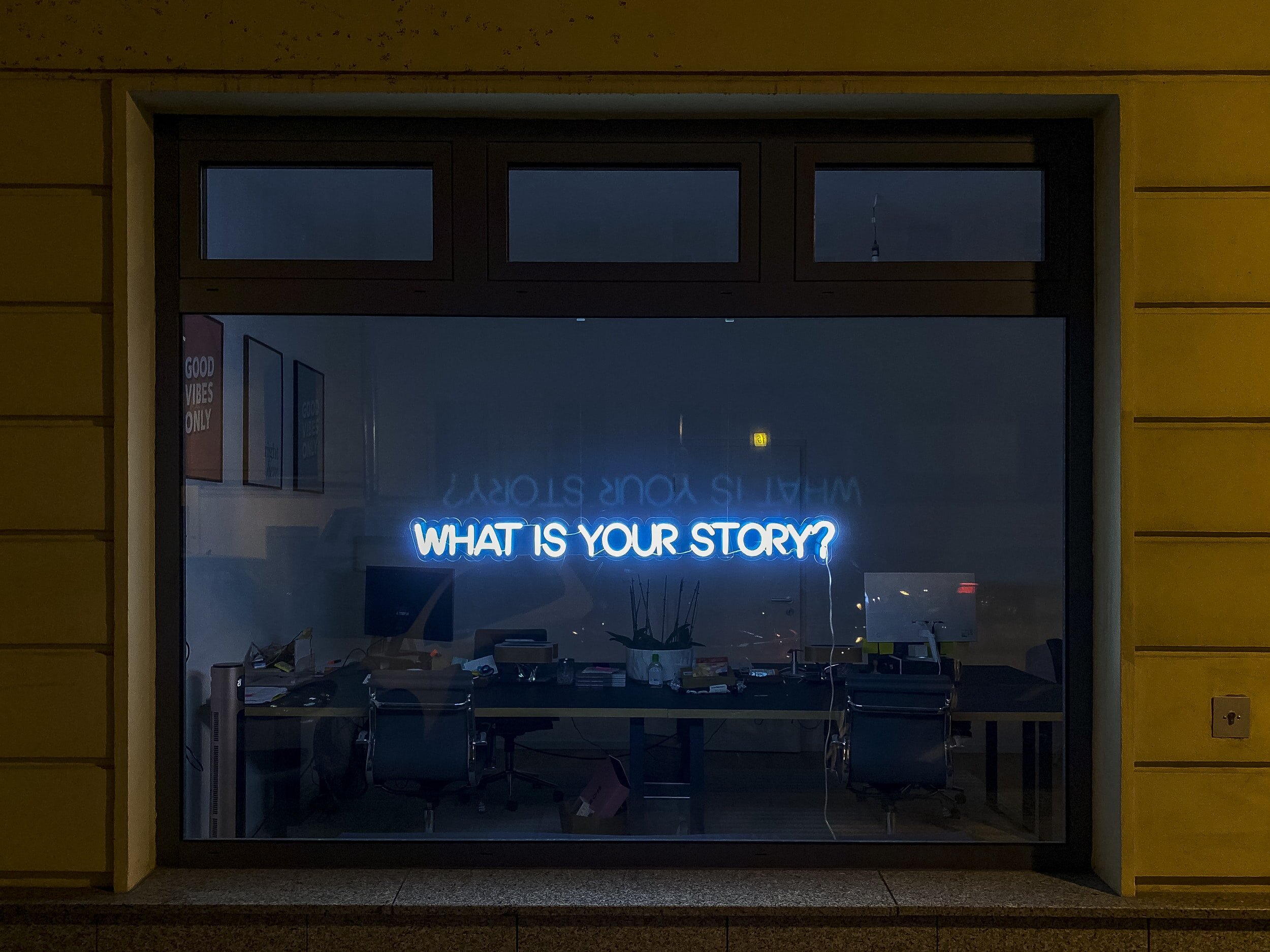Making Room for Love: Navigating Chronic Illness & Relationships
Navigating your chronic health condition can have its own challenges without the added stress of managing relationships in the modern world. From appointments, to medications, to everything-in-between, you have your plate full.
For those in existing relationships, I often hear people living with chronic conditions say that they “feel like a burden” to their loved ones—and they believe this to their core.
For people who are interested in starting a new relationship, many have shared that their chronic condition poses certain barriers to putting themselves out there. Much of this is due to the stigma, lack of education, limited inclusivity and visibility around illness and disability in our society. While there are improvements being made every day, there is still much work to be done!
Regardless of whether you are a 30-year partnership veteran or are interested in possibly starting a new relationship, feeling like your chronic condition is getting in the way of connecting well with others in your life is hard.
Loving yourself first—including the messy parts
Before we dive in to showing up in other relationships, we must first consider our relationship with ourselves.
First and foremost, you are worthy and deserving of love and acceptance just as you are. Let me repeat so it really sinks in: You are worthy and deserving of love and acceptance just as you are.
Messy and imperfect is perfect. When you show up as yourself, you are giving others around you the ability to see you as you really, truly, authentically are. When we smooth out our rough edges or shrink ourselves to fit into a more bite-sized version of ourselves, we are not only denying ourselves from tapping into our power, strength, and light, but we deny others the opportunity to bask in that glow with us.
If you feel like a burden in your current relationship or fear that you will be a burden in your future relationships, you might find that you minimize your pain, ignore your needs, and have difficulty asking for help when you could use it the most. Chances are, this has made you much more independent than you give yourself credit for, but it also can create:
· more suffering
· lower self-esteem and self-confidence
· feeling unsure about what our needs actually are
· increased pain
· self-blame
· shame
· guilt
· increased isolation
Your feelings are totally valid and your needs deserve to be met just as much as everyone else’s. Loving yourself regardless of size, shape, scars, disability, or perceived failure is not always easy, but it’s necessary. When you love and accept yourself and all of your messy, crunchy, uneven edges, it opens up opportunities for you to allow that to come from others as well. Creating confidence and self-love is a very personal and intimate process that is a vital part of living a life of authenticity and genuine human connection. If you don’t recognize your strength, power, and light, you’ll never believe it when someone who truly loves you tries to remind you of it.
Who deserves a seat at my table?
Imagine sitting around your dining room table. There is only enough room and food for so many people to spend this particular meal with. While you might wish you could invite everyone and have a party like nobody has ever seen, that is not the purpose of this gathering. The purpose of this gathering is to invite only the people who you can be truly open and honest with. The people who you can belly laugh with and share your tough stuff with. Who is at your table?
While only you can determine who is there, I can definitely tell you who is not there—
That friend who makes you feel guilty, unlovable, unworthy, and just all-around bad about yourself.
The person you open up to about your struggles and somehow makes you feel worse every time you talk to them.
That person who shames you and blames you.
The person who only wants to hear your highlight reel and isn’t interested in your behind-the-curtain stuff.
This list could go on and on, but you know those people I am talking about.
I often do this exercise with clients because I want them to realize that their time, life, energy, and relationships hold serious value. People living with chronic conditions have shared with me that they feel lucky to sit at other people’s tables, but forget just how special their own is. They forget how lucky other people are to sit at their table.
Vulnerability begets vulnerability, courage is contagious
In her book Daring Greatly, Social Worker Brene Brown so beautifully wrote, “Vulnerability begets vulnerability. Courage is contagious,” (Brown, 2013). What she meant here was that the more we share with others who deserve to hear our stories and have a seat at our table, the more it opens up the possibility for genuine connection. Being courageous in the moment where your voice is shaking and you have butterflies in the pit of your stomach offers the opportunity to be seen—truly seen—by those who will love and honor you. It all starts with communication.
Practice accepting what your loved one is telling you. If they share that they would tie a lasso around the moon and pull it down for you—practice accepting that your loved one is being honest. When they share that you are not a burden to them and that little voice in the back of your head screams “LIAR!”, remind yourself that feelings are not facts. Our brains do a great job of trying to convince us otherwise, but the stories we tell ourselves about our worth usually are not true.
Everyone has struggles—yours just so happens to be this one.
If you are in an existing relationship and finding that you are like a burden at times, consider the ways that you have helped your partner overcome their struggles. What ways have you shown up for them—and continue to show up for them? Recognizing that you are both humans with your own struggles evens the playing field and reorganizes your relationship as equal partners with different challenges and roles.
Most importantly, consider how you would feel if the tables were turned. Would you view your partner’s condition or need for support as burdensome? How would you support them?
Disclosure
If you are considering striking up a new romantic relationship, you may have concerns about how and when to decide to tell someone about your diagnosis and lived experience. This is an incredibly intimate decision and only you can decide when it would be appropriate to share. In conditions where certain parts of your illness are not easily concealable, this may force your disclosure without even saying a word. For others who may have an invisible illness, they may have more wiggle room in when to share. Regardless of where you fall on this spectrum, there is not a one-size-fits-all solution. Any choice to make on when to disclose your illness requires vulnerability and invites the possibility of meeting a few knuckleheads along the way.
It may help to ask yourself when you would want to know about something like this. Would it be the first meeting? Would it be the third? While this can be challenging and complex, it also gives you the opportunity to really consider what is meaningful to you. It allows you to really consider how you present yourself to the world and become mindful about who you invite to sit at your table—literally and figuratively.
Out and Proud
Did you ever see the movie “The Wedding Singer” with Adam Sandler? There is a part of the movie where a kid is sitting off to the side of a party after being rejected by someone they wanted to dance with. Adam Sandler’s character comes over to console the child and says, “Oh man, that hurts. But you know, why would you want to dance with someone who doesn’t want to dance with you, right? Listen, don’t worry. You’re gonna meet a girl who treats you right someday, I promise you.” This has always stuck with me as I navigated romantic relationships, friendships, and family challenges. Trust me when I say that this mentality is not easy—in fact, it’s pretty challenging at times. However, when I look inward and consider why I am trying to make someone else happy and forsake my own needs, I realize that I am people-pleasing and trying to force someone to sit with me because I am aching for love and acceptance. Once I remind myself of my worth, I often realize that I need to extend extra self-love to myself.
For some people, being out and proud about their condition is what works best for them.
In an age where dating has shifted online and swiping left or right has become the norm for many, people have considered including their diagnosis in their profile. This helps weed out people who may not be interested in committing to that type of relationship right away. Some consider this to be a time and energy saver from the beginning.
If you are able to meet in person and feel comfortable sharing this information from the beginning, some people find that this helps them decide pretty quickly whether this person would be worthy of a seat at their table.
Waiting
Other people choose to wait to disclose their condition until a few meetings in. This can be in romantic partnerships, in work settings, with family, etc. Every person’s reason to wait to disclose their condition is unique and is valid. Waiting to disclose can offer you the opportunity to “feel them out” before sharing an intimate detail. It also gives others the opportunity to learn more about you and start to create a genuine connection. Or the opposite—you might realize that this person may not be a good fit for your table and you do not have to spend the time talking about your condition before realizing that it’s not a good fit.
Preparing for questions
It is natural for people who may not have an understanding of your diagnosis to have questions. Some find it helpful to consider what possible answers could be shared in response to questions about your condition ahead of time. It is recommended to have a good understanding of your diagnosis so you can be able to help others understand it if they ask. This doesn’t mean knowing all of the scientific terminology, but it helps to know general terms and information. If there is a question that you are not ready to answer, you do not have to answer the question. Instead, responding with a statement like, “I do not feel comfortable sharing that” and redirecting the conversation elsewhere. If the question is inappropriate or causes you to feel unsafe, consider ending the meeting.
If you share your diagnosis with someone and they do not have a response, it may be that they are not sure what the “right thing” to say would be. It does not mean that they are ready to run for the hills. At this point, you can ask them what they know about the condition and offer to share more information about it—and what it means in your body.
Regardless of your choice on when and how to disclose, you deserve to be seen, valued, and loved for who you are. You deserve to be accepted in a safe and healthy space, without having to hustle to prove your worth. Remember that you are not a burden and you are so much more than your condition wants you to believe. The right people will recognize your worth and how precious your life is to them.
Works Cited
Brown, B. (2013). Daring Greatly: How the Courage to Be Vulnerable Transforms the Way We Live, Love, Parent and Lead. London, England: Portfolio Penguin.



